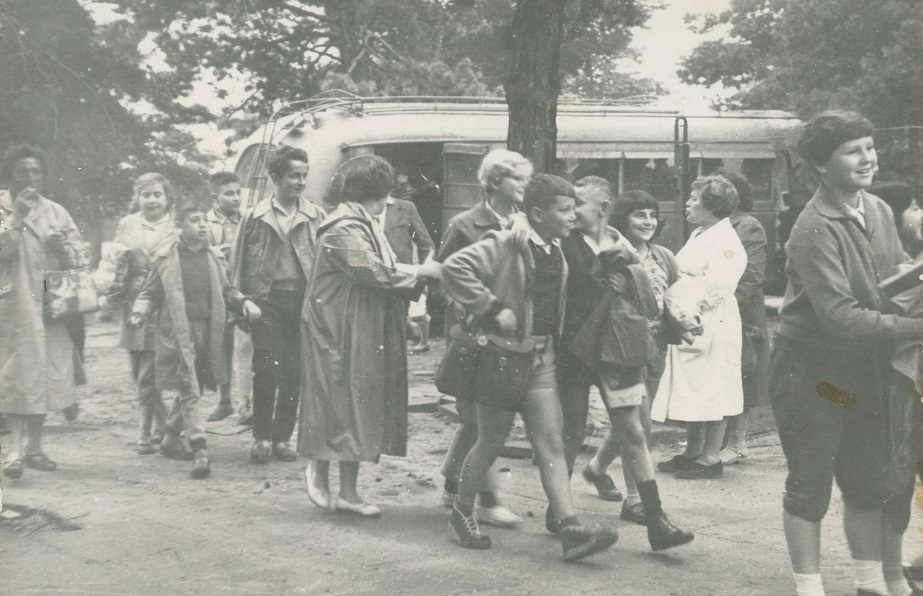Children’s and youth’s summer camps organised by the Social and Cultural Association of Jews in Poland used to be one of the efforts aimed at reviving the Jewish community. Apart from being provided with entertainment, young people who had lived their lives integrated into the Polish society, were offered a chance to rediscover their Jewish identity.
The first summer camps for Jewish youngsters were held just a year following the end of World War II. The young campers visited such places as e.g. Karpacz, Władysławowo and Śródborów, a town inextricably linked to TSKŻ. At that time, youth camps were organised by local Jewish organisations, including in particular, the Central Committee of Jews in Poland. After the dissolution of the Central Committee of Jews in Poland, which occurred in 1950, and as a result of the lack of foreign financing due to the political circumstances, vacation planning for children was discontinued for several years.
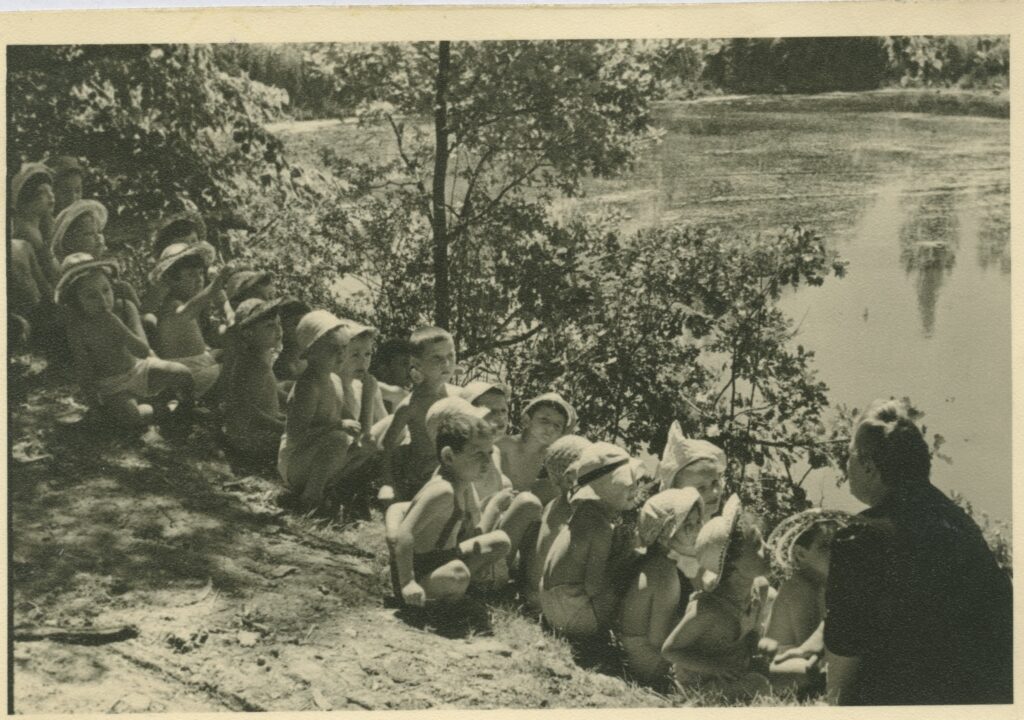
The summer camp initiative was revived in 1958, when the Social and Cultural Society of Jews in Poland started to receive support from the American Jewish Joint Distribution Committee (JDC), a charitable organization founded in the United States. In 1958, the JDC donated USD 690 thousand to help the Polish Jews, and part of this support was allocated for children and young people’s vacation camps. The preparations moved into full swing that same year, when the Association, received a permission organize summer camps from the Ministry of Education .
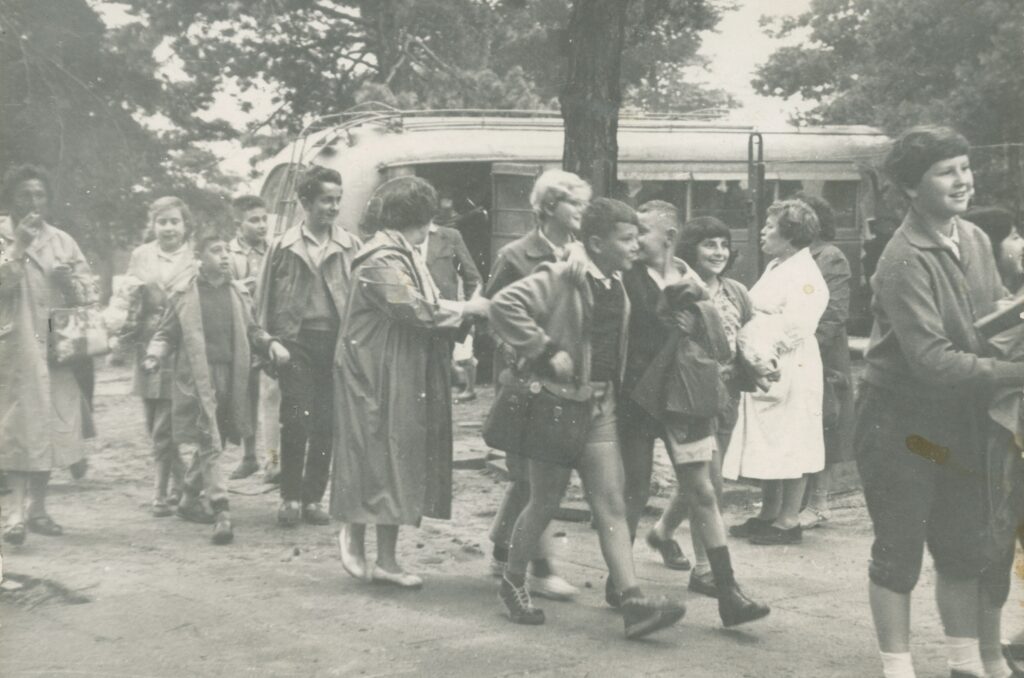
One of the first youth summer camps, to which TSKZ youth from all over the country embarked, has become legendary. A town called Poronin was chosen as the destination for the summer trip. The holiday was organised by Szmul Tenenblatt, a journalist, who later become an Editor-in-Chief at Fołks-Sztyme weekly. The camp (in Poronin – author’s comment) was a real success and sparked the development of the specifically Jewish work of TSKZ with young people. Szmul was definitely the “star” of this camp – reads the memoirs of educator and journalist Mark Web, published in Piotr Pęziński’s book “At the Crossroads. Jewish Youth in the People’s Republic of Poland 1956-1968”
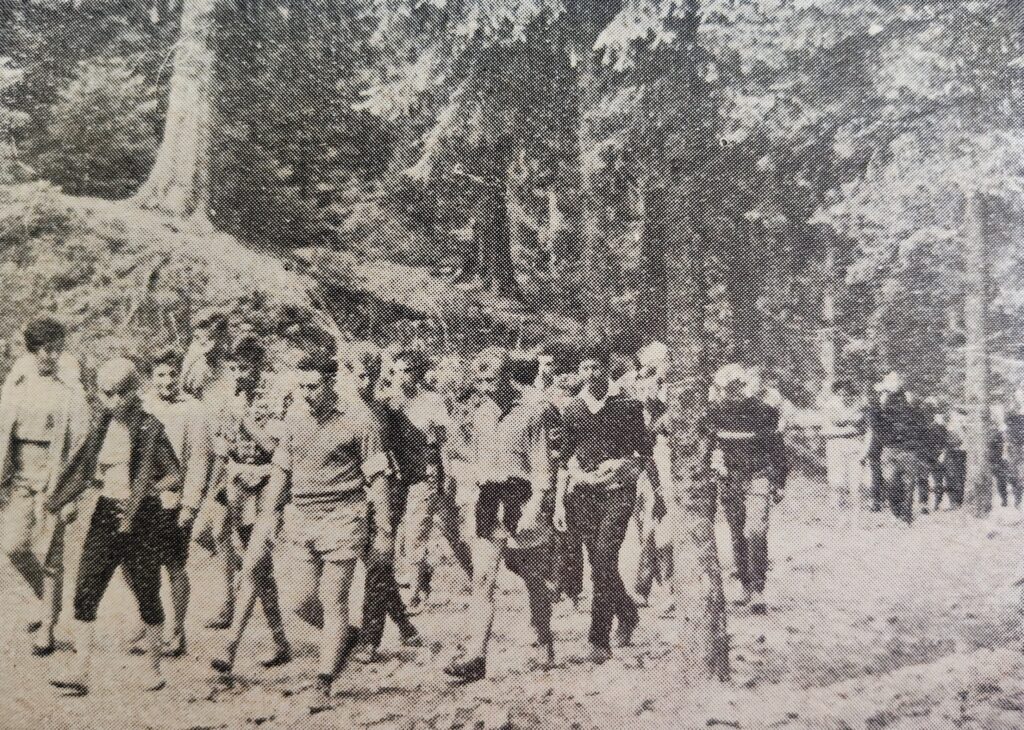
TSKŻ’s camps were held at various summer resorts all over Poland. The holiday agenda combined physical exercise and educational activities. The young holidaymakers learned Yiddish, explored Jewish history and culture, took part in theatrical performances, sang traditional songs.
Daily life at the vacation trips had its own rhythm. The day began with morning exercise, at noon the children took part in thematic activities or spent active time outdoors. At the very end of the day, it was obligatory for everyone to gather around the evening campfire. Even though TSKŻ has always been, and continues to be, a secular organisation, the camp tutors were trying to show their pupils some elements of religious tradition. For several weeks, children from large cities came into contact with those who lived far from Jewish centres on a daily basis. For the latter, it was often the first opportunity to see that they were not the only Jews in Poland – reads the album published on the 70th anniversary of TSKŻ.
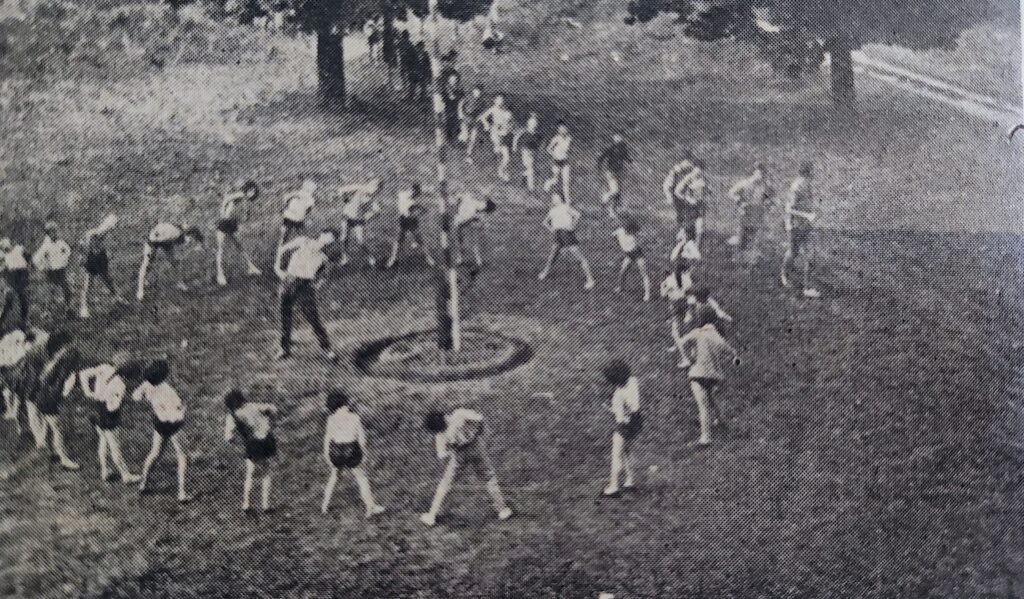
For some of participants, holiday trips were the only moments of carefree enjoyment. The ambience at home was grave – the parents locked themselves in, constantly talking in whispers, as if they were afraid of the neighbours – recollected Jakub, one of young holidaymakers at Śródborowianka – And at our summer camp? I could play football, laugh, write letters home in which I wrote for the first time:“I am happy.” The trauma of the Holocaust was evident in the behaviour of tutors, who overindulged in the subsistence needs of their pupils. In the pages of Our Voice, there were accounts of the youngest who recalled the lavishly set tables and their stomachs overflowing from eating.
Nowadays, TSKŻ holiday camps are recalled with a great deal of nostalgia. Many people regard them as the last gasp of Jewish life in Poland before the wave of emigration of March 1968. For young people, summer camps were the most important event of the year, eagerly looked forward to. The camps became a source of many precious memories – first loves, joys and carefree moments. It was at summer resorts that children and young people made friendships that lasted (or continue) for decades.
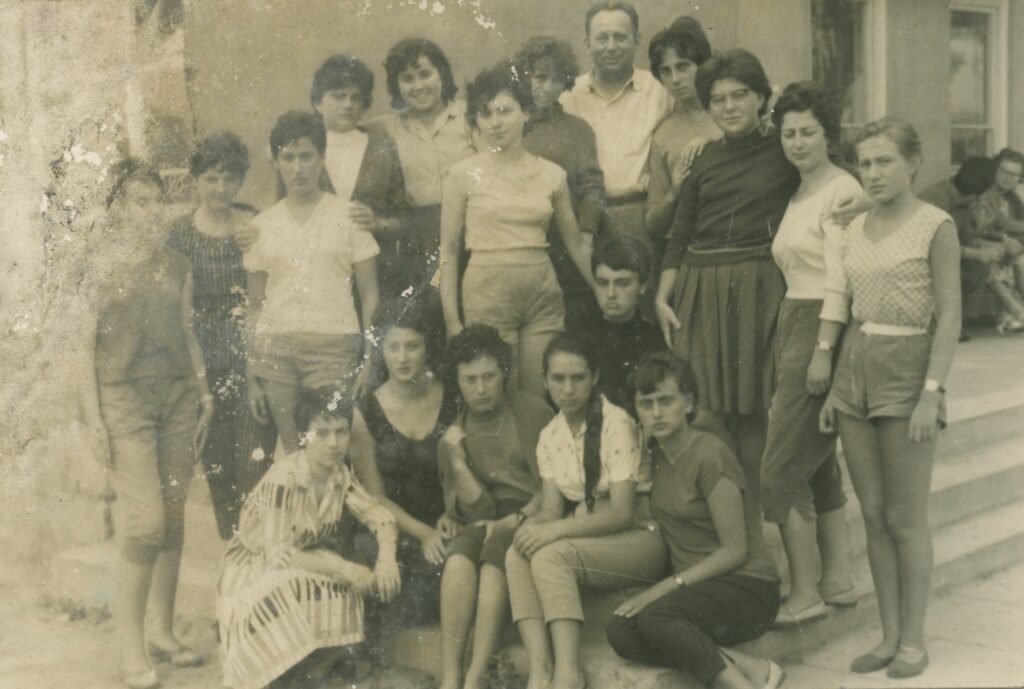
Our July article will focus on the Jewish scouting movement during the communist era in Poland.
By Marta Rydz
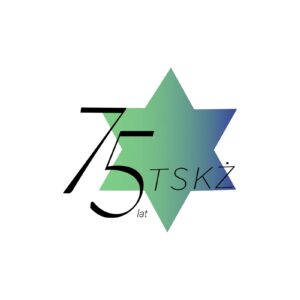
Completed thanks to a grant from the Ministry of the Interior and Administration
